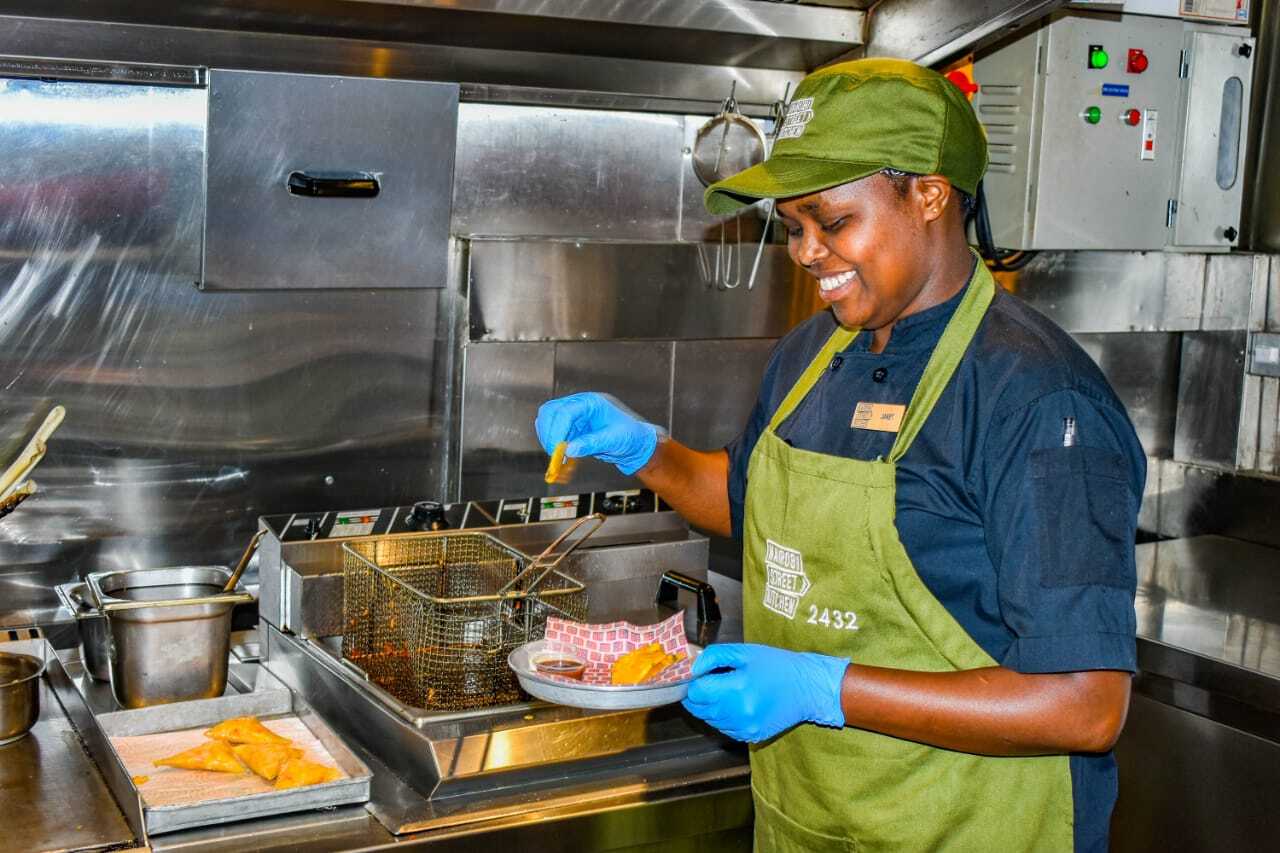
The restaurant, located in Nairobi’s Westlands area, is popular on Thursdays because it hosts salsa dances.
As the chef de partie, Janet has to make sure everything is in order before it starts to get busy.
Unlike the typical eateries, the restaurant comprises of 10 different concepts which serve cuisines inspired from different cultures around the world.
For instance, one of the concepts Si Senor, serves Mexican dishes. Another, the Nood, serves Asian cuisines.
Desi Loco serves Indian cuisines, Bird Exchange offers a variety of chicken recipes while 68 Library serves Portuguese dishes.
Chefs do not receive customers’ orders through waiters, but instead get to interact directly with their customers.
This approach not only helps to reduce the number of complaints received, but it also helps to boost customer satisfaction.
“When the chef interacts with the customer one on one, they can explain to them exactly what a particular food contains, and if they don’t like a particular ingredient, the chef can remove it or replace it with what the customer likes,” notes Ms Yego.
Knowing that they could get a better service by interacting directly with the chef, customers who are used to being served by waiters when they dine out, also find it easier to embrace the concept of walking up to a chef, making an order and waiting as it is prepared.
The chefs at NSK, mostly aged between 18-35 years, are rotated every now and then between the different restaurants, so as to learn how to prepare all the different cuisines.
A course that could take two years to learn in school is thus learnt in weeks at the restaurant.
“Other hotels will train you on just one role. Here, they encourage you to perform many different roles at a time. I have been with them since they started and by now, I can double as a chef, a steward, I can order things from the store, I can even train new recruits,” notes Ms Yego.
The only challenge for chefs working at the restaurant is that a significant number of the clients who frequent the place are tourists from other nationalities, creating a sort of language barrier.
Janet however notes that a lot of the staff have come to appreciate this as an opportunity to learn new languages and new cultures, as it also makes them more marketable for work opportunities abroad.
“Some of the customers we interact with are tourists, so we have to push ourselves and be open to learning new languages, so that if a customer returns the next day, we can be able to communicate better with them,” says Ms Yego.
The business has been focusing mostly on serving individuals, but now plans to expand into serving larger groups such as corporate organisations through outside catering services, or hosting large private events including company get-togethers, staff parties, cocktail events, networking events, big shows, and weddings.
“There is a big opportunity for being an event space, because there’s a great space upstairs at the bar, which is not used all the time. A lot of people are tired of going to more formal settings to do corporate events, and they want something a bit more relaxed, a more informal setting to network comfortably,” notes Ms Yego.
𝗦𝗲𝗺𝗮𝘀𝗼𝗰𝗶𝗮𝗹 𝗶𝘀 𝘄𝗵𝗲𝗿𝗲 𝗿𝗲𝗮𝗹 𝗽𝗲𝗼𝗽𝗹𝗲 𝗰𝗼𝗻𝗻𝗲𝗰𝘁, 𝗴𝗿𝗼𝘄, 𝗮𝗻𝗱 𝗯𝗲𝗹𝗼𝗻𝗴. We’re more than just a social platform — from jobs and blogs to events and daily chats, we bring people and ideas together in one simple, meaningful space.